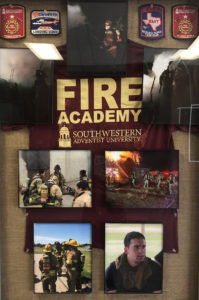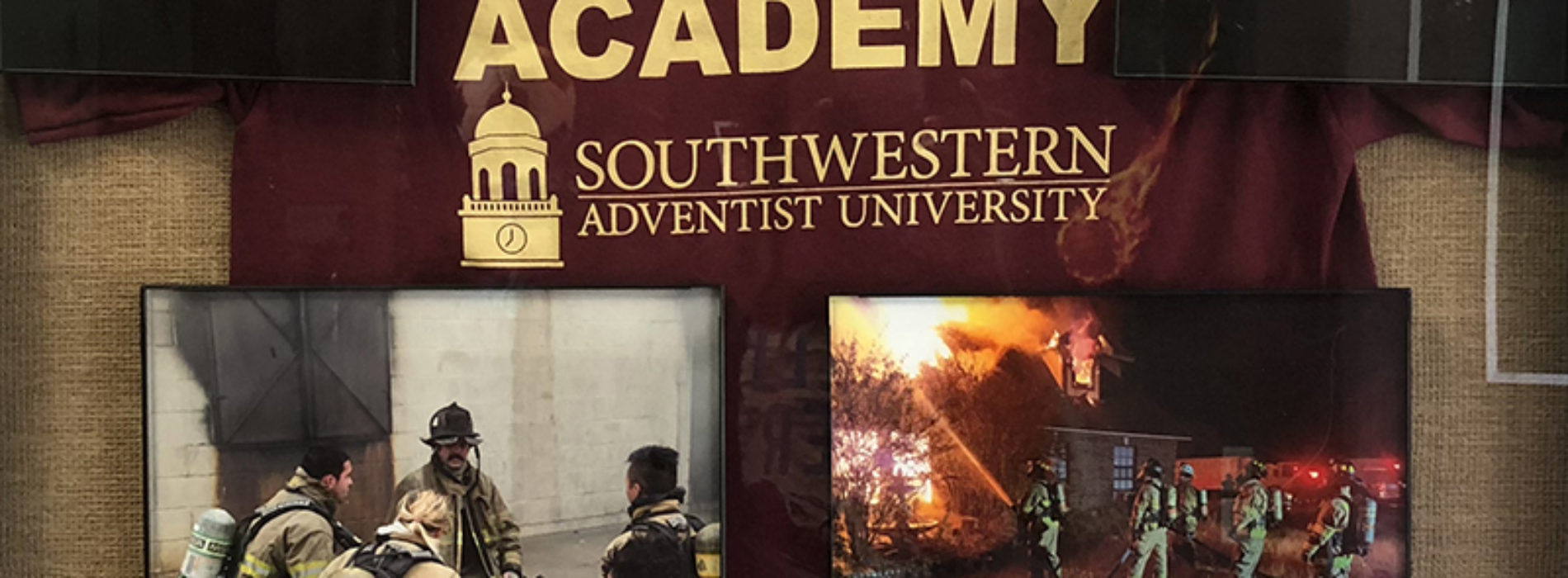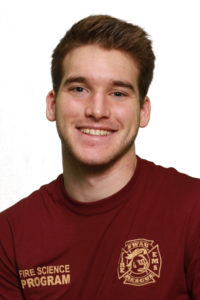Southwestern’s EMT Program: Interview with Caleb Minett
(edited by Jalen Wells and Brianna LeBlanc)
Caleb Minett is an EMT fire fighter who is graduating with the class of 2018 from Southwestern Adventist University with an associate in fire science, as well as his EMT certification after he passed through the EMT course last year.
While Minett aspires to be a nurse and is using firefighting to help pave his way towards that goal, there are many job opportunities in the field of EMT.
“You can get a job as a firefighter; that’s why it’s part of the fire science program,” says Minett. “You can also use EMT to get a job in emergency medicine in ambulances as part of an ambulance service. It also allows you to work as a tech in a hospital if you’re looking to do more on the medical side of the job as opposed to firefighting. Being an EMT is a great steppingstone to becoming a nurse or paramedic.”
Southwestern’s EMT course conducts class twice a week on Mondays and Wednesdays for about 90 minutes. It consists of lecture and some hands-on learning, but most of the learning comes from clinicals. One thing that’s very important for success in the course is to study the textbook.
 There are opportunities to work with the ambulances as well as the hospitals, since class and work for these clinicals are done in 12-hour shifts. Clinicals are a part of the class and allow the students to experience what the job is like. Students have seven clinicals and 20 patient contacts total and write out fake patient care reports so they learn how to write out reports. They have at least three clinicals in the hospital and at least three clinicals in the ambulance.
There are opportunities to work with the ambulances as well as the hospitals, since class and work for these clinicals are done in 12-hour shifts. Clinicals are a part of the class and allow the students to experience what the job is like. Students have seven clinicals and 20 patient contacts total and write out fake patient care reports so they learn how to write out reports. They have at least three clinicals in the hospital and at least three clinicals in the ambulance.
“You can get a lot more out of your clinical if you’re willing to learn and put in the effort,” says Minett. “They will teach you and you’ll get to learn a lot through the mentorship of the professionals who will often push you to do things you might not expect. When I worked in the hospital I liked to jump right in there and ask, ‘what do you need’ and they’d put me to work wherever they needed help with and that was really cool. Those times gave me very educational experiences.
“If students take initiative and really put themselves out there, they will get a lot out of clinicals especially because there’s always something. Your feet are moving literally all the time when doing clinicals in the hospital. When you’re on clinicals at the fire department it’s less chaotic but still very interesting and fun,” Minett says.
Minett says he was inspired to do EMT when he was little because his dad was a firefighter. He recalls several times throughout his childhood where his dad, while driving with Minett and his family, would pull up to accidents and help out, because his father had the training and felt that he should help. Minett would always watch from the car window and say “that’s so cool” and “I really want to be out there.” He believes those numerous experiences are why he’s always had the drive to want to help people.
“When I came to SWAU I started out in nursing,” he explains. “Eventually I switched to EMT because I felt this would help me get in the door to what I specifically want to do as my career and enable me to do emergency response.”
Minett also says that while the courses he’s taken have been very helpful in helping him learn the information, it’s been the clinical experiences that have helped him the most in preparing for his future.
“EMT classes are a lot of book work, and just like any other class the book work doesn’t entirely prepare you for the real-life application,” he says. “It’s great that you learn all the information in class and it will prepare in the sense that you should know your stuff, how to use the equipment and why you’re doing what you are. But class won’t teach you how to not get tunnel vision, about the feeling of misdiagnosis, about having compassion for the people you’re around. However, you get a lot of good support from work you do in college such as clinicals and because you have the opportunity to experience those things in a controlled atmosphere so that you learn and understand the feeling of the environment. Even though it’s not real, it feels real.”
Minett’s advice to the upcoming class of students looking to do EMT is that students should take initiative because this class isn’t a class where you get fed; it’s a class where you feed yourself. The work will be much easier for a student who understands and can perform on the job than it will be for a person who just sits and observes everything. Students need to take initiative and really truly learn it for themselves so that way they can do it to the best of their ability.
About author
You might also like
Across the Street Ministry Benefits Communities, Students
The Spiritual Life and Development office has made improvements to their ministry called Across the Street. Jeffrey Hernandez, a student chaplain and sophomore theology major, has taken the position as
Valentine’s or Galentines? Options for Singles on Valentine’s Day
By Grace O. Akinfenwa Yet another Valentine’s Day has arrived. Since this day signifies when couples exchange signs of love and affection as a token of appreciation, it often causes
Work Opportunities Are Available On Campus
There’s more to college than schoolwork, for instance paying the bills. Jobs are available on campus; students just need to know where to look. The Student Services building is a








0 Comments
No Comments Yet!
You can be first to comment this post!